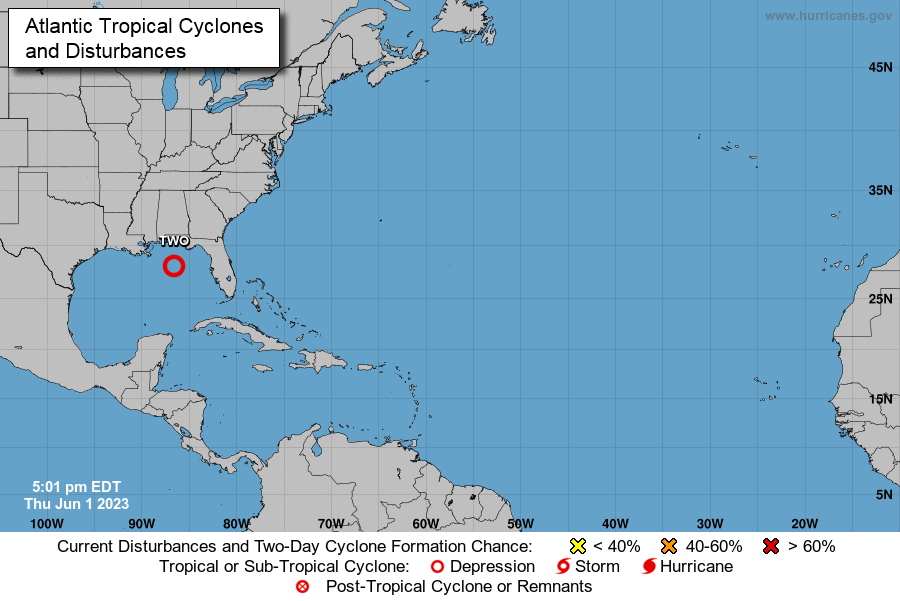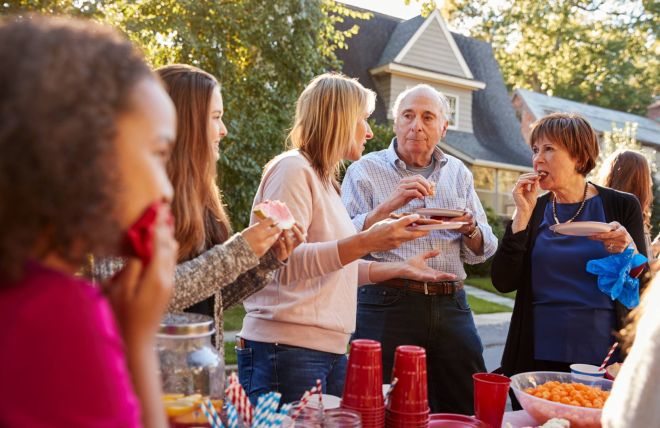Hold onto your umbrellas and buckle up, folks! It's the first day of the Atlantic hurricane season, and Mother Nature is already showing off her powerful moves. Brace yourselves for an exciting and unpredictable ride through this wild weather season! 
As hurricane season is here, the memories of past storms, like Hurricane Ian, serve as stark reminders of the importance of preparedness for homeowners' associations (HOAs). HOAs play a crucial role in safeguarding their communities and ensuring residents are well-equipped to face the challenges posed by hurricanes. In this blog post, we'll provide valuable tips and insights on how to help your HOA community prepare for the upcoming hurricane season, drawing inspiration from the experiences and lessons learned from Hurricane Ian.
Work with Your HOA Board
Create a thorough emergency plan that outlines procedures and protocols for different scenarios. Your emergency plan should include:
- An emergency response team CERT consisting of board members, community leaders, and volunteers.
- Conduct a thorough risk assessment to identify potential vulnerabilities within the community.
- Create evacuation plans and designate shelter areas for residents in case of severe storms.
- Establish communication protocols to ensure timely dissemination of information and updates.
- Provide residents with a list of emergency contacts, including local authorities, utility companies, and emergency service providers.
- Collaborate with neighboring communities and local emergency management agencies to leverage shared resources and support.
Conduct Regular Inspections and Maintenance
Ensure that all community structures, such as buildings, roofs, windows, and gutters, are in good condition. Conduct regular inspections to identify and address any potential vulnerabilities. Take the following precautions to minimize potential damage:
- Remove or secure loose items in outdoor areas such as patio furniture, umbrellas, and grills.
- Trim trees and branches near buildings to prevent them from falling or causing damage.
- Secure fences, signs, and other structures that may be vulnerable to strong winds.
- Store or anchor any loose equipment, such as pool chairs, sports equipment, and gardening tools.
- Close and secure all windows, doors, and shutters to protect against wind pressure.
- The Morgan Law Group advises homeowners to take photo's of their home contents before a named storm. Watch the interview:
WSVN/Morgan Law Group Interview from Sales Spots WSVN on Vimeo.
Communicate Early and Often
Keep residents informed about the upcoming hurricane season, potential risks, and the HOA's preparedness plans. Utilize various communication channels such as newsletters, emails, social media, and community websites to provide updates, safety tips, and resources. Take the following steps:
- Send out regular newsletters to update residents about the upcoming hurricane season, potential risks, and the HOA's preparedness plans. Castle Management, a leading HOA management company, utilized proactive communication by sending regular email updates twice a day during a recent hurricane to keep residents informed and prepared.
- Leverage social media platforms to share important information and resources related to hurricane preparedness.
- Maintain an active community website with comprehensive hurricane preparedness resources.
- Host virtual town hall meetings to address residents' concerns and provide updates on the HOA's preparedness plans.
- Establish a communication hotline for immediate updates, emergency assistance, or reporting issues related to hurricane preparedness.
Alternative Communication Methods
During power and phone outages, utilize battery-powered radios and physical notice boards to ensure communication channels remain open. Install notice boards in central locations within the community where important updates, safety instructions, and emergency contact information can be posted for residents to access.
Establish a Volunteer Neighborhood Watch System or Community Emergency Response Team (CERT)
Encourage neighbors to look out for one another by establishing a neighborhood watch system. Provide training in first aid and CPR, conduct safety drills, assist with evacuations, monitor weather updates, coordinate communication, check on vulnerable residents, document damage and report, provide support and resources, collaborate with local authorities, and conduct post-hurricane assessments.
Checking on Insurance Coverage
Checking insurance coverage for the HOA and reminding residents to check theirs is a crucial step in preparing for hurricane season. I'll share a personal experience about the importance of checking insurance coverage. When our family moved into the Islandwalk a few years ago, I assumed our homeowner's insurance policy would automatically transfer to our new home. However, we were reminded to check and discovered that the coverage was not properly transferred, leaving us vulnerable to potential risks. Review the HOA's insurance policies to ensure the community has the necessary coverage. Consider coverage limits, deductibles, exclusions, additional coverage options, liability coverage, and maintain up-to-date documentation and records.
Conclusion
By following these proactive steps, your HOA community can better prepare for the challenges posed by hurricane season. Prioritize safety, communication, and collaboration to ensure the well-being of residents and minimize potential damages. Remember, preparation is key to weathering the storm and emerging stronger as a united community.







